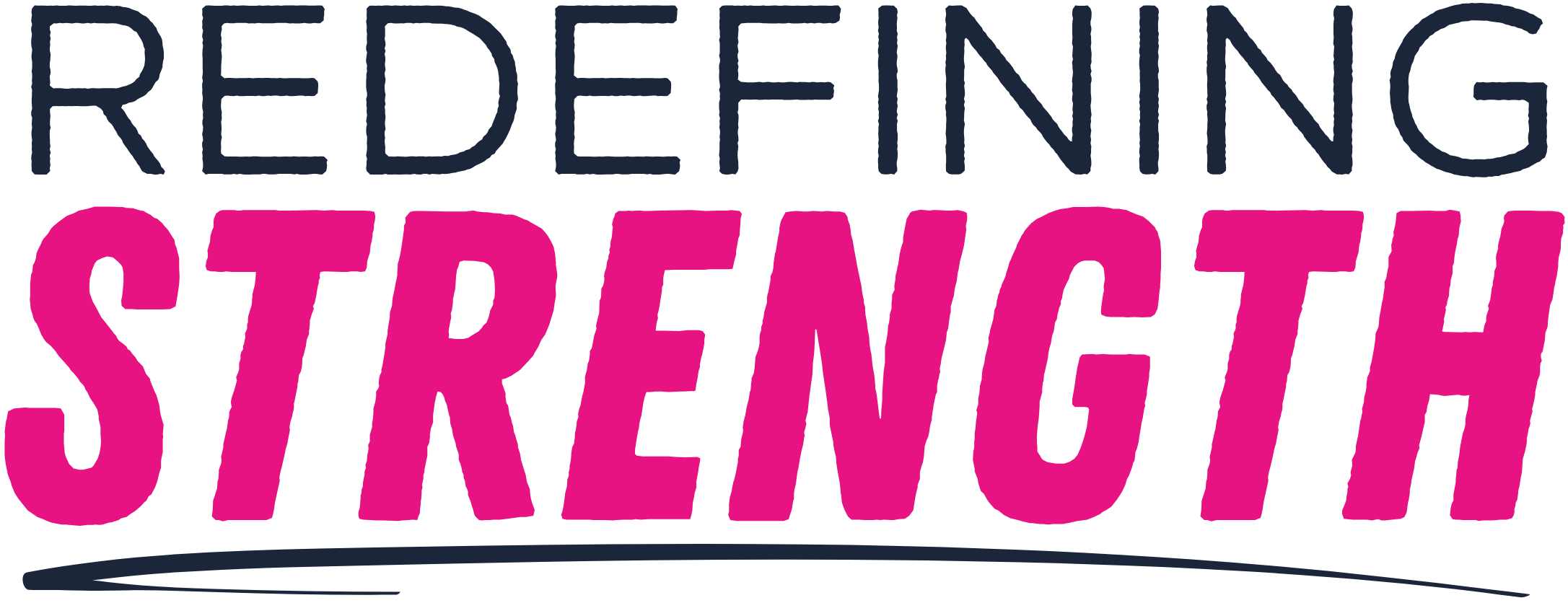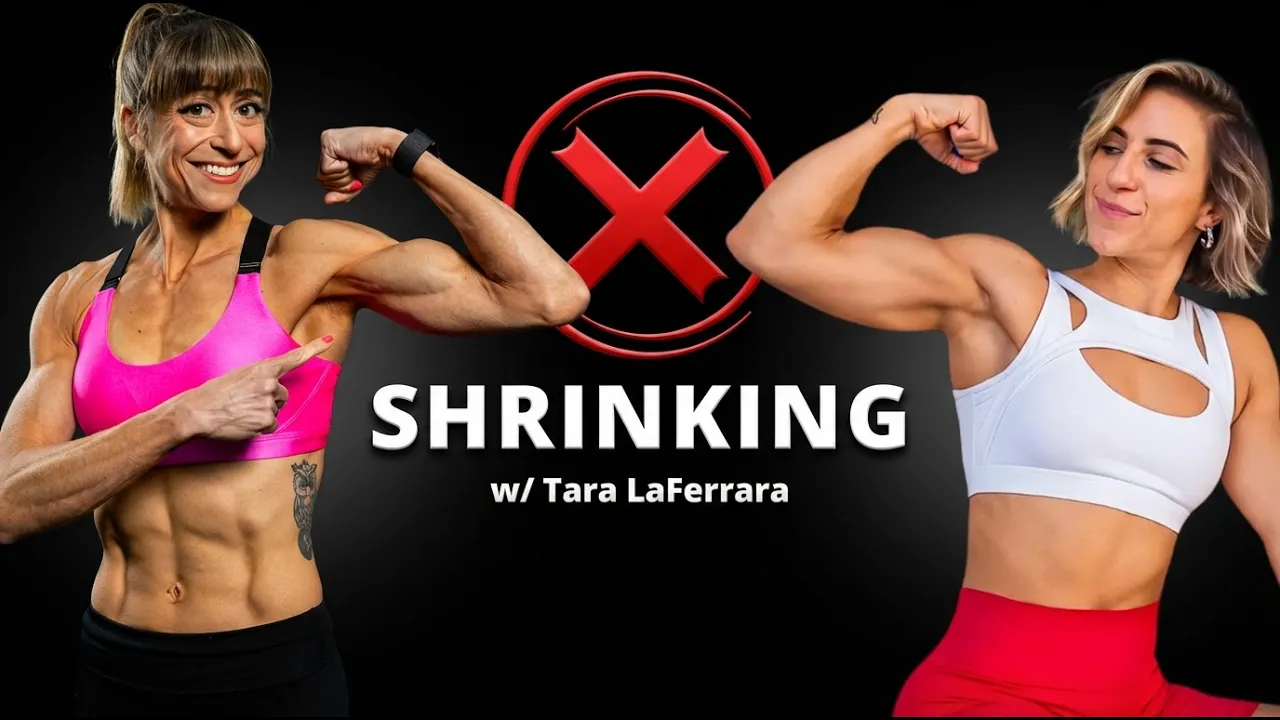The simple fact is, one size doesn’t fit all. And so many things can work for so many different reasons.
And ultimately what leads to our success, especially when it comes to fat loss, is something that we can do consistently LONG-TERM.
Even then, the exact diet or workout routine we follow will constantly be evolving because nothing in life ever stands still.
Your needs and goals change and so should your routine.
Yet, especially with diet, people become very “passionate” about their specific beliefs. It often stems from their own dietary preferences or unique needs based on specific health issues.
They start to demonize specific lifestyle things and tell others they should too.
And these things can turn into fat loss myths that ultimately hold us back from achieving the balance and sustainable routine WE need to see results.
What worked for your friend may NOT work for you. And trying to fit everyone into the same mold leads to disaster.
That’s why today I want to bust 3 fat loss myths and help you dial in your workout and diet routine so you can truly achieve results through a plan that matches YOUR needs and goals.
Myth #1: Carbs make you fat. Fat makes you fat.
Carbs don’t magically make you gain fat. And neither does fat.
So all of those low carb advocates or low fat advocates that say it’s the only way to lose weight?
It’s just because they’ve found the macro ratio right for them and their body and lifestyle.
But no one macro is evil or bad. Each plays an important role in the optimal functioning of our body.
And depending on our needs, goals and training routine? We may need more or less of one or the other to achieve our ideal body composition and lose fat.
Now if you’re about to be that person to comment about all of the evils of carbs or fats (because I guarantee there will be one of each) and all of the health issues they can cause…
Do you not realize the irony in the fact that you will both not agree on which is actually evil?
There are so many factors that may make eating more or less of a specific macro better or worse for us PERSONALLY.
Now if you have a specific health issue?
You may need to eliminate or limit specific things.
That may help you even to lose weight too.
But just to demonize that macro completely if you don’t have any health concerns COULD actually lead to health issues not to mention hold you back from the fat loss results you want.
Now you may be thinking, “But when I cut carbs I lose so much weight on the scale so quickly!”
But that isn’t true fat loss.
When you cut your carbs, you deplete your glycogen stores and lose water weight.
So, sure, you’ll see a quick change on the scale. But it isn’t fat being lost.
And the second you add carbs back in?
You’ll likely gain all of that weight back and more.
Plus this restriction, especially if you love carbs and want to include them at a future date, doesn’t teach you how to actually create a sustainable lifestyle change.
And something we can do consistently is ultimately what helps us achieve the best result.
So don’t demonize a macro because someone else said so. Consider your specific needs and even your training routine.
If you’re less active? You may not need the immediate fuel of carbs so going low carb may help you lose fat.
However if you’re super active and training intensely lifting and doing cardio? Cutting your carbs super low may actually hinder your fat loss results.
Instead you may find going higher carb and lower fat ultimately allows you to feel fueled while achieving your ideal body composition.
It’s why focusing on protein while not demonizing carbs or fat but simply even potentially cycling them based on your training may be best!
Myth #2: Cardio Is Better Than Strength Training To Lose Fat
As much as I love training, as much as I think it can assist in the looking better as you lose fat…
You don’t technically need to work out at all for fat loss.
Working out in general can make the process easier, help us maintain our results long term and can help us create that calorie deficit, but we can’t out exercise our diet.
And often in our attempts to create more of a calorie deficit through exercise, we sabotage our fat loss results.
The focus of our workouts shouldn’t be on how many calories we burned. It should be on moving better and building muscle even so we look leaner, stay healthier and even help ourselves avoid metabolic adaptations as we do lose fat.
So if our workouts aren’t really a tool for fat loss, why are we told we need to do more cardio if we want to lose weight?
Studies have shown you burn more calories during a cardio session. And because of these studies, mainstream media started touting the benefits of cardio for weight loss.
You may even have seen those benefits yourself when you started running after a long time off.
Simply increasing our activity helps us burn more calories. So even without changing our diet at first, we begin to lose weight from those extra calories being burned.
And cardio, especially to start, burns more calories on average than strength training sessions.
However, over time you adjust and adapt to those cardio sessions. It’s why you can run or cycle further faster without fatiguing.
But those gains in your endurance also mean you don’t need or use as much energy.
So even though your watch may say you still burned a ton of calories, your body has become more efficient and you aren’t utilizing as much energy as you did when you first started.
It’s why you may feel like you’re not getting the same results as you once did from those same cardio sessions.
Not to mention, if you’re constantly trying to do MORE in order to burn more calories, you may be holding yourself back and actually creating more metabolic adaptions as you diet and lose weight.
Steady-state cardio can be catabolic to muscle tissue and losing muscle mass can negatively impact our metabolic rate.
Muscle takes more energy to maintain AND it becomes harder to build and retain lean muscle mass as we get older, which may be why we feel like it gets harder to lose weight the older we get!
This is why focusing less on cardio and actually more on strength can be so key.
Not only is it easier to constantly create progressive overload in our strength workouts, BUT we can also help ourselves build lean muscle which will help us keep our metabolic rate healthier and burn more calories even when at rest.
Fighting to maintain that lean muscle even while working to lose fat will help you achieve better body recomposition results and maintain those results long term.
So while you may have turned to cardio in the past, you may actually see better fat loss results by cutting back on cardio as you get leaner while focusing more and more on strength work.
Of course if you love cardio, you do not need to cut it out and the best results happen when we create a sustainable routine, but it may be a reason, besides even better performance for the cardio activities you love, that you do include some strength training in your routine!
(For even more on Is Cardio Key For Weight Loss?, check out this Fitness Hacks Podcast.)
Myth #3: Tracking is restrictive
Tracking is not fun. It’s tedious. Boring. Overwhelming to start. Annoying.
All of those things.
But it isn’t restrictive.
What IS restrictive is our MINDSET toward it.
It’s because we don’t recognize that the tracking is just data.
Just like you measure out ingredients so your cake turns out instead of looking like a burnt mess, you want to measure your food to create the recipe that leads to your body recomposition results.
We aren’t measuring necessarily to cut things out. But simply to make sure we get the right portions to match our needs and goals.
Tracking isn’t just for weight loss. It can help us gain muscle, fuel better. Recognize foods that may even be giving us digestive issues.
We can track to make sure we’re even optimally fueling for our sport to set a PR in our next race.
So we need to separate tracking from restriction in our minds.
Because that food logger isn’t judging – you are!
(For more on why Tracking Is Key, click HERE!)
SUMMARY:
We have to remember that we are each unique and one size doesn’t fit all. So don’t fall prey to fat loss myths that would lead you to create restrictive diets or train for hours upon hours doing cardio.
Focus on smalls sustainable changes based on your current routine and get ready to be consistent as those results take time to add up!
If you’re ready to dial in your workouts and your diet so they work together to get you the best results possible, check out my Macro Hacks!
–> Macro Hacks




I am so HAPPY to see sensible advice! I’m a dietitian and it’s a struggle to break down these diet myths. Personally, I prefer to steer away from the word ‘diet’ as it lend itself to the idea of it being short-term rather than a lifestyle choice (but that’s just me!).
Thanks Joanne! I’ve actually tried to do the opposite and EMBRACE the term diet since technically it just means any and all foods we consume. Taking that word back from the “dieting industry!” 🙂
Hi Cori
I would like to understand better or find a resource that would help me manage my nutritional options for my body, I am 61 small frame lean body time but struggling to maintain lean muscle as I get older despite Yoga, Pilates, Weights, Walking, Swimming, variations of your program (I am an active person) I do these things for me not weight loss or body shape. regards Shelly
Hi Shelly. I’m biased in recommending this but I’d highly recommend my macro hacks as it will help you understand how to fuel even as your needs and goals change over time! https://macrohacks.redefiningstrength.com/optin-416066421596387411652?sl=blogcomment